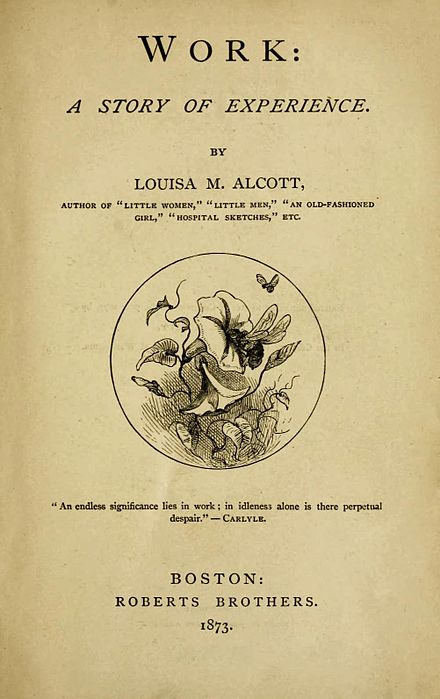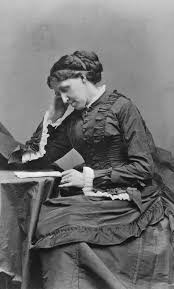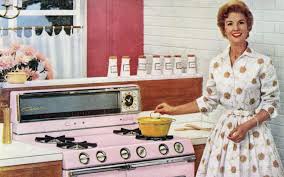|
Louisa May Alcott's novel, Work: a Story of Experience, is a defence of women's quest for independence through work that seems to owe much to Mary Wollstonecraft's philosophy. One running theme of the novel is that poor women can achieve emancipation through work. Much work doesn't allow them to do so because it is drudgery for abusive employers. But the book features a number of virtuous people who make it part of their life work to help create better employment situations for women in need, women who want to escape forced marriage (as is the case with 15 year old Kitty) or women who forfeited family ties by entering in a relationship outside marriage and are now shunned by society (such as Rachel) The heroine of the novel, Christie Devon, declares to her aunt in the first line of the book that there is going to be 'a new declaration of independence', and that she is going to leave home, try out various lines of work and hopefully end up with a career. She wants to see the world and earn a living, but mostly, she wants to be free ('I do love luxury but I love independence more', says she when turning down a rich suitor she does not love). She tries various professions: maid, governess, actress, companion, seamstress, and at one point she is without work and destitute and considers suicide, but is rescued by a woman who is part of circle of people who help working women. By the end of the story, Christie has found a career: she has become a speaker and activist on behalf of working women. The women she helps are poor, but she believes that there is room for improvement in the condition of rich women too, and when a rich acquaintance comes to ask her how she might help, she tells her as much: rich women 'need help quite as much as the paupers, though in a very different way'. The task she gives Bella is to set up a beautiful and elegant salon in her brother's home, and there set a new fashion, one for common sense. She adds: " I don't ask you to be a De Stael and have a brilliant salon: I only want you to provide employment and pleasure for others like yourself who are now dying of frivolity or ennui." What's distinctive about Alcott's proposal is that the salon is designed primarily for the improvement of women. Like a traditional salon, it is hosted by a woman, and welcomes men and women of good society. But unlike traditional salons which are mostly for facilitating the exchange of ideas, literary, political or otherwise among men, this one is designed to encourage women to think about things other than dress and parties, and to embrace more 'old-fashioned' and 'commonsensical' ideals. This, according to Alcott is the sort of help rich women need, and it sounds very much like Wollstonecraft's quest for a slowly achieved revolution in manners.
0 Comments
The #Tradwife movement which emerged in the last couple of years on social medial should be in a position of power and scrutiny right now. Those women who claim to have embraced domesticity can revel in the self-isolatory measures imposed on most of us. They know how to stay at home, and they have made a career out of making their home a comfortable and happy place for others who live there. So, one might think, they are better off, right now, than those feminists who still abide by second wave feminism beliefs about the shackles of domesticity. If like Simone de Beauvoir, your home is just a place where you sleep, but that you prefer to work, eat, and play outside, then right now, you will not be in a good place. At least, that seems like the obvious inference to draw. "Suddenly “looking to the past” and doing things the #TradWife way doesn’t seem quite so crazy. I can happily care for & teach my child without complaint, cook a meal from scratch, minimise, economise and budget - AND I actually like spending time with my family. Born for this!" Last week I looked to the past at Manon Roland's productivity in prison to see if I can find something helpful for us in these trying times. Part of Manon Roland's success was her domestic training: she was able to make her cell comfortable for working in a few minutes, and then it required very little upkeep. But the point here, is that she knew how to spend very little time on domestic work so that she could have more time to herself for what was truly important: writing and studying! This seems pretty much like the opposite of the tradwife's philosophy. Manon did not clean to serve others, but to serve herself. Of course, there was no one else for her to serve while she was in prison: what if she'd been at home, still, with her husband and their daughter? One thing we do know about the Roland marriage, is that both parents were happy to spend time with their daughter, whether teaching her, playing with her, or just minding her while the other was busy. So it's unlikely that had she been in isolation as we are, in her home, with her family, that Manon Roland would have turned into a tradwife, and reveled in cleaning and cooking for the sake of making others comfortable. Manon found that her aptitude for home making came in handy when she was forcibly isolated in prison in the months prior to her death. While she did not enthuse that she was 'born for this!' she did say that her skills at making any space comfortable in a short time and being able to stay in a small enclosed space, from which she escaped through her reading and writing made that difficult period tolerable. What her skills helped her with, was not enjoying her prison cell, but making time and space to escape it through her work. So for her domestic work is not an end in itself, nor a subservient activity performed for the benefit of others only.
|
About
This is where I live blog about my new book project, an intellectual biography of three French Revolutionary women philosophers. Categories
All
Archives
November 2022
|



 RSS Feed
RSS Feed